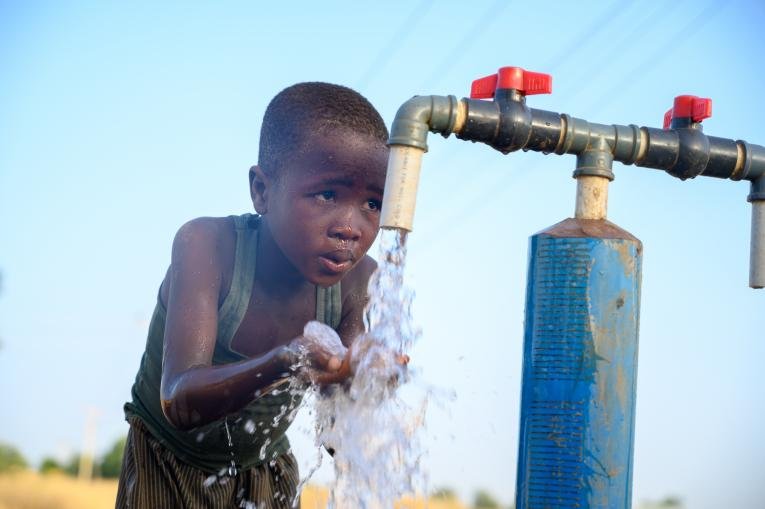
The Water Crisis
In Sierra Leone children from families with limited resources often collect drinking water from unsafe sources that attribute to many health problems in the country. Globally Sierra Leone has one of the lowest incomes.
The goal of the Sierra Leone Safe Water Project is to develop a safe water model for limited resource children and their families in developing countries. This project will provide clean water for low- income children in Sierra Leone while providing training and employment opportunities for youth and young adults related to safe water and nutrition.
Unsafe Water
In Sierra Leone, health problems and a low life expectancy can be attributed to water pollutants and poor sanitation, which contribute to an average life expectancy of only 56 years. Infections and parasites, found in contaminated water, are the leading cause of death in Sierra Leone. Almost half of the population utilizes unprotected water sources for drinking: freestanding water, such as dams, streams, ponds, and unprotected wells. The country has two seasons, a rainy and dry season. Torrential rains make water collection difficult for local residents as many lack adequate collection and storage equipment. During the rainy season, flooding may occur filling uncovered wells with waste and spreading contaminated water to other drinking sources. During the dry season, droughts are often experienced.
Chemicals used for agriculture production, further contaminate drinking water. Poor sanitation results in a high risk of Hepatitis A and Typhoid fever. Standing water breeds malaria-carrying mosquitoes that plague the region with one of the most common deadly infections contracted in the area. Un-sanitized storage containers used to collect and store water results in unsafe drinking water for children and their families.
The Farm Project
The farm provides an opportunity to provide assistance through agriculture production and nutrition training. The Sierra Leone Council has a 10-acre farm located in Waterloo. Currently Mangoes are the primary crop, but there are plans to diversify crop production with aid from international individuals and ministries. Waterloo is about twenty miles east of Freetown is one of Sierra Leone most ethnically diverse cities, with no single ethnic group forming even 30% of the population. It is a major urban transport hub and lies on the main highway linking Freetown to the country’s provinces. This strategic location provides great potential for growth as produce from the farm can be distributed throughout the nation.
Even though 95% of water is used for agriculture, 90% of food consumed is imported to Sierra Leone. With high costs of food, the average caloric intake for a Sierra Leonean is currently harmed by the country’s inability to produce sufficient crops for children and their families.
The Water Solution
We are producing clean drinking water using a chemical-free filtration system (SkyHydrant Max), that treats ground water (well or cistern) or surface water (lake or river) supplies, dams, creeks, springs and waterholes. Each unit produces up to 12,000 liters of clean water; enough water for the essential daily domestic needs of 1000 people.
4 Steps to Produce Safe, Clean Drinking Water
1. Dirty water flows into a water filter at low pressure utilizing gravity pressure from an overhead tank, or a small pump fitted with a pressure-reducing device.
2. Dirty water contaminants are filtered and trapped within the membrane fiber pores on the surface, leaving clean, clear water to pass through. The trapped contaminants are flushed away allowing continuous operation of the system.
3. Clean safe drinking water - free of turbidity and pathogens - is ready for immediate use, storage or to be piped to additional units.
4. Clean water is distributed to children free of charge. The surrounding community is able to purchase filtered water for a small fee.
Sponsor the Water Project
Give a One-Time Gift or Partner with Us with a Regular Donation
